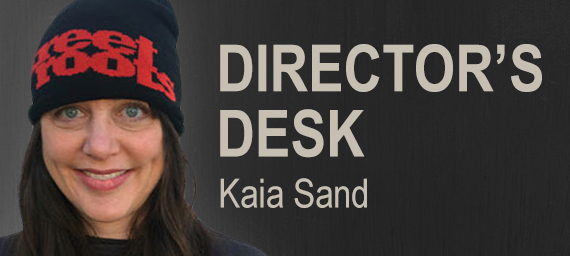Our city is poised to make a large investment in climate change equity — and that’s a really big deal.
I’m proud that Street Roots is one of 65 organizations to receive grants from Portland Clean Energy Fund to invest in renewable energy, energy efficiency and green jobs for people of color as well as people in poverty. (Portland City Council imposed an additional 45-day due diligence period that organizations have to clear before receiving grants.)
It’s frankly exciting to be among the organizations in this cycle — these are groups doing key work in our city.
These funds are deeply needed. The wild weather of our disrupted climate has inequitable impacts. The pandemic has exacerbated that inequality -– homelessness and housing insecurity have increased in the pandemic, and Black, Indigenous and Latinx folks have been infected and died at higher rates than white people. The weather disasters are compounded by the increased suffering wrought by the pandemic.
If you were able to take refuge from the heat last week because you had access to air conditioning, you likely considered how hard it would be without it.
All around Oregon — from the Joint Office of Homeless Services here in the north of our state to the city of Medford down south — municipalities and organizations opened cooling shelters for people to escape dangerous heat. The thermometer hit 109 degrees in Pendleton.
It’s an urgent public-health matter that people receive refuge from the extreme weather and fires.
Like many other recipients of PCEF grants, Street Roots has had to launch ad hoc responses from crisis to crisis. Last week we pitched a tent in Old Town, running a hose from our office that we mounted up high so that mist sprayed down, cooling off people from the strong sun. We handed out water bottles (thanks to so many supporters who brought them to our office).
We need to make bigger investments to move beyond reactive responses to sustained and forward-reaching responses.
So, Street Roots is launching an ambitious plan to renovate a building on Northwest 3rd Avenue Burnside Street to move into. The Portland Clean Energy Fund grant allows us to install solar panels to reduce our carbon footprint, as well as install energy-efficient equipment backed up by a battery should the grid go down in weather disasters. It also means we can install and maintain excellent heating and cooling systems, in addition to smoke filtration so our vendor drop-in space will provide better air to people on the streets during forest fires.
We’re not alone in knowing we need to make substantial investments to deal with extremely different conditions.
The need is widespread.
Fortunately, the equitable design of the Portland Clean Energy Fund means as the profits of giant retailers soar, so do the funds for investing in climate justice.
The fact that PCEF has record revenue — $107,215,441 — from which to award grants did not happen in a vacuum.
These funds come from a 1% tax on local revenues of massive retailers. How massive? Their gross revenue exceeded $1 billion dollars. In order to be taxed, at least $500,000 of those sales had to have been in Portland.
So when PCEF funds are flush, the profits of giant retailers are vast.
We should take enduring pride in the fact that voters had the foresight in 2018 to create a tax that moved cash to the communities that need it the most to withstand the pound of extreme weather and find employment in a green economy.
After all, too often in the global economy, wealth is built from suffering, and there’s no recourse.
Take the speculative gambling Wall Street is placing on crops and other goods that are stressed by climate change, war and the pandemic. As Montabay News reported this week, people are getting rich off of placing bets on wheat futures — as well as other commodities — which simply drives the prices up. In other words, as some people suffer, some people profit.
That’s not a pretty thought, and it’s too often how it works: wealth accumulates as suffering does. There’s little incentive to make equitable investments.
In Portland, we are insisting on capturing some profits to invest in people in our community who suffer the largest impacts of an inequitable economy.
It’s about building a society more accountable to each other, not just accepting that wealth accumulates for those with means while those without are stranded with ad hoc crisis responses, subject to illness and death.
I’m proud Street Roots can invest in long-term responses, alongside so many other organizations that work each day to make sure that Portlanders stranded in the margins are given front-and-center concern. The Portland Clean Energy Fund gives us hope.
Street Roots is an award-winning weekly investigative publication covering economic, environmental and social inequity. The newspaper is sold in Portland, Oregon, by people experiencing homelessness and/or extreme poverty as means of earning an income with dignity. Street Roots newspaper operates independently of Street Roots advocacy and is a part of the Street Roots organization. Learn more about Street Roots. Support your community newspaper by making a one-time or recurring gift today.
© 2022 Street Roots. All rights reserved. | To request permission to reuse content, email editor@streetroots.org or call 503-228-5657, ext. 404


